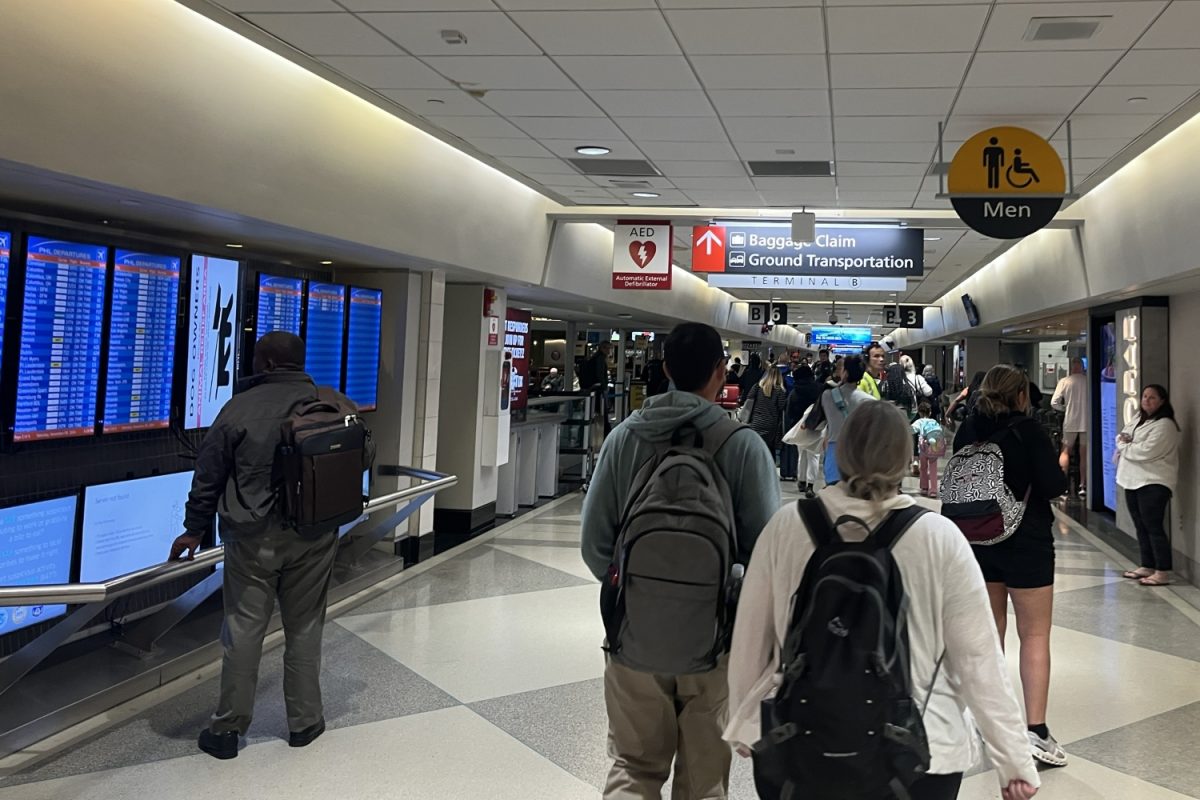A new federal policy requires airlines to refund travelers for canceled flights or those experiencing significant delays effective Oct. 28. Under this new rule enforced by the U.S. Department of Transportation, all airlines must issue refunds for domestic flights delayed by more than three hours and international flights delayed by over six hours, according to a statement from the White House.
In addition to newly mandated refunds for delays and cancellations, passengers are also entitled to a refund if airlines fail to provide extra services that they purchased, such as Wi-Fi, seat selection, or inflight entertainment.
With more than 16.4 million flights taking place annually in the United States, this new set of rules is expected to significantly improve consumer protection in air travel, ensure that travelers are able to easily receive compensation, and save consumers over half a billion dollars in hidden and surprise junk fees each year, according to the White House statement.
“It’s a great action for consumers,” said Jenn Engstrom, the state director for the California Public Interest Research Group (CALPIRG) Education Fund. “Unfortunately, I think a lot of travelers don’t just want refunds. They want to get where they’re going, so this new policy won’t get rid of all of the frustration of having your flight delayed, but it will make sure that you’re getting your money back for that hassle that it caused you.”
Prior to this new policy, many airlines had their own rules and regulations for when a consumer was entitled to a refund, which created confusion among passengers and made it difficult for consumers to receive fair compensation.
“If you were trying to get a refund before this policy went into effect, airlines often directed you to a third-party site instead of handling it directly,” Engstrom said. “With this new policy, it’s clearer that it’s the airline that needs to take responsibility and rebook or refund your flight rather than these other websites.”
Ramtin Aidi, a mathematics and AVID teacher at Carlmont, is excited about the new policy. As someone who enjoys traveling and exploring the world, he has experienced his fair share of inconveniences with airlines.
“My fiancée came to the U.S. six months ago to visit me, and she was flying with United Airlines,” Aidi said. “When she arrived, her luggage was lost, and despite calling the airport daily, she received no updates during her two-week stay. After a week, we found out her bag had been sitting at the airport the whole time, and we had to go to the airport to retrieve it.”
With the arrival of this new federal policy, Aidi hopes that airlines will provide proper compensation to consumers who may have shared the same experience and be more vigilant with customer service.
Brenda Yang, a tech executive at Calm, frequently traveled for business in the past and believes that the new refund policy will primarily benefit companies rather than individual business travelers.
“For business travelers, this policy may be more beneficial for the companies as opposed to the travelers themselves,” Yang said. “Since the company typically pays for business trips, most business travelers aren’t concerned about the financial implications. However, in cases of flight cancellations or delays requiring rescheduling, the company would have to cover most of the expenses, making this policy more beneficial to those organizations.”
While the new set of regulations will significantly benefit consumers, airlines may not be entirely pleased with the changes.
“I think how airlines communicate the automatic refund will be interesting,” Yang said. “In recent years, it feels like flight prices have increased – I’m going to assume that continues, particularly with new rules in place like this one.”
Aidi shared the same sentiment.
“I think there’s going to be pushback from the airlines because, obviously, they want to maximize their profits, but it’s about time the government did something and stepped in to keep airlines accountable,” Aidi said.
With the holiday season steadily approaching, more people are expected to travel within the next few months, and the implementation of this new policy is set to create a smoother travel experience for consumers.
If airlines fail to comply with these new regulations, CALPIRG offers resources and tips to help consumers secure their refunds. One key tip is to use a credit card instead of a debit card when booking flights, as this can make obtaining refunds faster and more convenient.
“We’ve been working at CALPIRG to get some kind of media attention around this issue so that the Department of Transportation would do something about it, and this new policy is really a great step towards advocacy for consumers,” Engstrom said.













